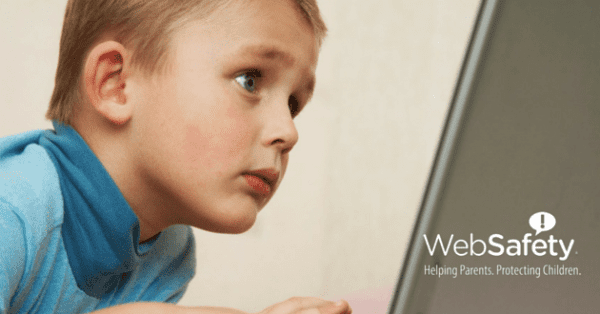
Have you ever worried about your child's Internet usage? It's probably a good thing if you do. Numerous studies, such as those cited by CBS News, have "linked more screen time to obesity, higher blood pressure and cholesterol, sleep loss and academic problems."
So what should you be on the lookout for as a parent? The following are some of the most destructive online habits your child might develop.
Overposting on social media
There are volumes of unwritten rules when it comes to social media interactions, and it's a steep learning curve when children first come in contact with it. Their lack of experience with online relationships will leave them vulnerable to committing social faux pas, which, in turn, could lead to their victimization through cyberbullying.
Make sure you have a chat with your kids to find out what they like to do on social media. Know what apps they're using and be involved in their lives. The better your relationship with them, the more likely they are to listen when you suggest some guidelines for social media posting politeness and frequency.
Giving up healthy habits
When kids get really involved in their online habits, they start neglecting healthy habits like getting sufficient exercise, spending time outside, reading and engaging in imaginative play. The New York Times shared research which has shown, "Children can develop pain in their fingers and wrists, narrowed blood vessels in their eyes (the long-term consequences of which are unknown), and neck and back pain from being slumped over their phones, tablets and computers."
Long term, we may end up seeing a generation of people with more back and eye problems because of their love affair with their mobile devices, not to mention the increased risk of being overweight, which is a well-known side effect of electronic addiction.
Oversharing personal information
Kids won't automatically know what kinds of information that should and shouldn't be shared in public forums. They also likely won't understand that even the most private of online channels can be vulnerable to hacking or sharing. Once something is out there on the Internet, it's almost impossible to erase. Sharing personal photographs on Snapchat, home addresses on Facebook or payment information on a phishing site are all possible mistakes both new and experienced Internet users might make.
Neglecting real-life relationships for online friends
Even the most well-adjusted adult can be susceptible to the addiction to social media, which means children and teens are at an even higher risk. Your kids require your guidance and advice to avoid trading their real-life friends for the ease and convenience of online ones.
One study out of the University of California, Los Angeles cited by CBS News found that "the more screen time children get, the harder it is for them to recognize emotions." The lack of this crucial skill will cripple their ability to make and keep healthy relationships as they get older.
Becoming a cyberbully
We'd all like to think our darling children would never bully another child, but dosomething.org says 43 percent of children have been bullied online, a circumstance which actually raises their risk of then becoming cyberbullies.
Stompoutbullying.org says other signs that your child might be a cyberbully is if he or she has multiple profiles or accounts with the same social media platform, if he or she gets extremely upset when you try to take away the phone or iPad or if he or she seems defensive or secretive about the time spent online.
For parents who want to be better about nipping this type of thing in the bud, there are apps such as WebSafety to monitor and prevent your child from doing this.
Being silent about cyberbullying
The only thing worse than cyberbullying is witnessing it happen, and not saying anything about it. Dosomething.org has found that "90% of teens who have seen social-media bullying say they have ignored it" and "only 1 in 10 victims will inform a parent or trusted adult of their abuse." Educating youth about cyberbullying and its effects will help encourage them to do something about it when they see a bully acting out online.
Chances are, kids are going to make mistakes online, but WebSafety is dedicated to helping parents correct these mistakes by monitoring specific online behavior such as cyberbullying. With this app, parents can feel reassured that they're kept up-to-date on how their kids are using their phones. WebSafety and the data its app provides can bring the re-assurance that all parents are looking for when it comes to their children and their online security.

